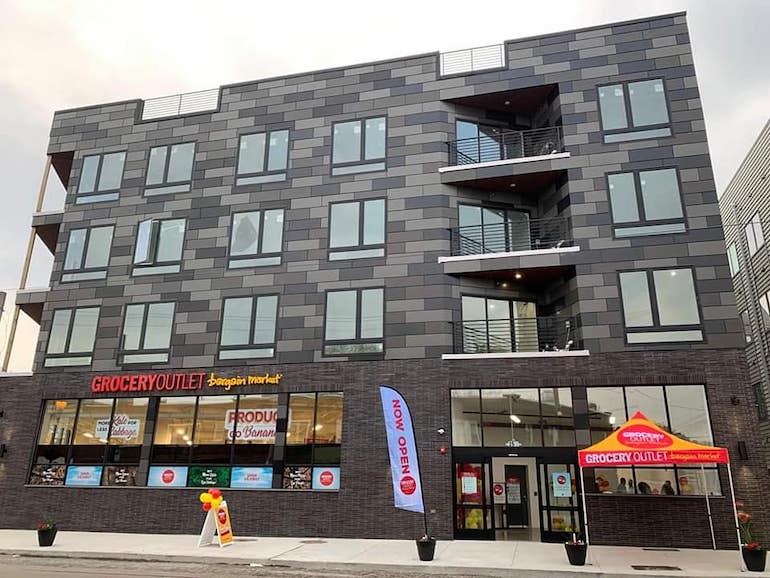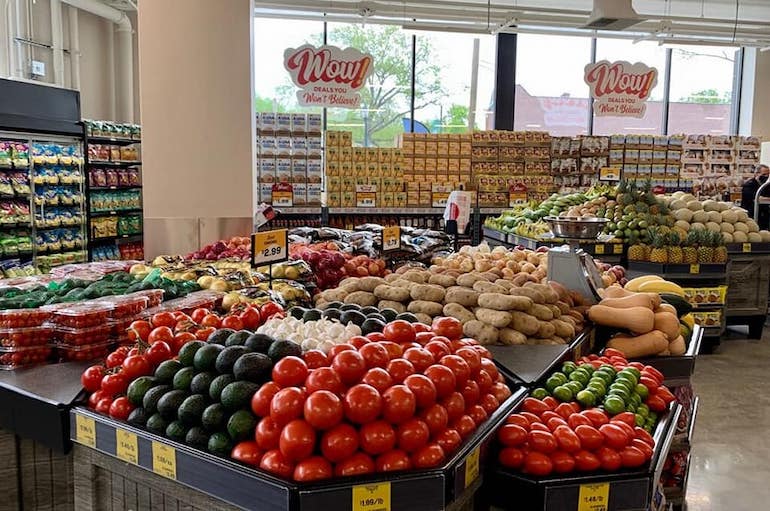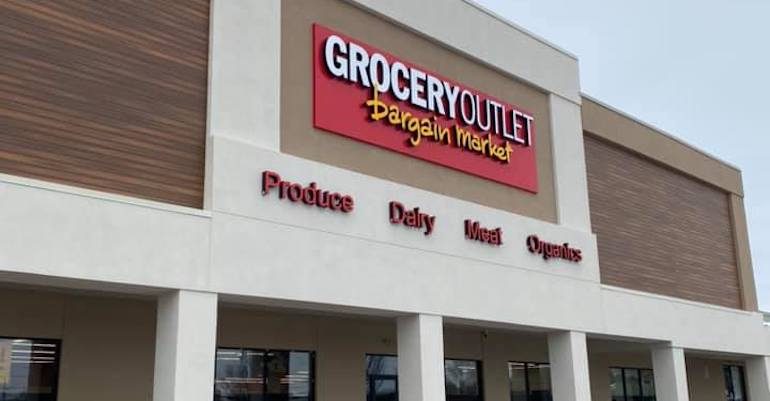Grocery Outlet Holding Corp. saw earnings climb in the fiscal 2021 first quarter, while tough year-ago comparisons to sales spikes from consumer panic-buying at the onset of the COVID-19 pandemic led net and same-store declines.
In the quarter ended April 3, net sales totaled $752.5 million, down 1% from $760.3 million a year earlier, Grocery Outlet reported yesterday after the market close. Comparable-store sales fell 8.2% year over year, the Emeryville, Calif.-based value grocer said.
The decreases compare with gains of 25.4% in net sales and 17.4% in comp-sales during the 2020 quarter, in which the World Health Organization declared COVID-19 a global pandemic (March 11) and the United States declared the virus a national emergency (March 13), triggering a rush of shoppers to grocery stores of all stripes to stock up on food and essential supplies.
At the bottom line, Grocery Outlet posted first-quarter 2021 net earnings of $18.89 million, or 19 cents per diluted share, up 49.4% from $12.64 million, or 13 cents per diluted share, a year ago. Adjusted net income came in at $23.12 million, or 23 cents per diluted share, down from $28.75 million, or 30 cents per diluted share in the prior-year period.
Analysts, on average, had forecast adjusted earnings per share of 22 cents, with projections ranging from 21 cents to 25 cents, according to Refinitiv.

Grocery Outlet’s store in Mount Airy (Philadelphia), Pa., is one of two new stores in the East opened so far this year.
“We are pleased to have delivered on our expectations in the first quarter as we’ve begun to lap the onset of the pandemic last year. Our ability to consistently execute at this high level would not have been possible without the hard work and dedication of our corporate and IO [independent owner-operator] teams,” Grocery Outlet CEO Eric Lindberg told analysts in a conference call late yesterday.
“Their combined efforts drove a continued strong first-quarter financial performance. Comp-sales decreased 8.2% following a 17.4% increase in the same period last year. New stores continued to perform in line with our expectations, contribute meaningfully to total sales volume, which was down a modest 1%. Profitability remained strong with adjusted EBITDA margin above 2019 levels,” Lindberg explained. “We attribute our continued strong performance to the steadfast execution of our differentiated business model. Our value proposition is as strong as ever, and our ability to deliver extreme savings, a treasure hunt experience and a locally curated assortment in a friendly environment continues to resonate with customers.”
During the first quarter, Grocery Outlet opened 10 new stores and closed one location, ending the period with 389 stores in California, Washington, Oregon, Pennsylvania, Idaho and Nevada, compared with 355 a year earlier.
“So far in the second quarter, we’ve opened six additional locations and continue to see new stores perform well across geographies,” Lindberg said. “Within the next few months, we will be opening our 400th store in Hailey, Idaho, a town just south of the Sun Valley ski resort and east of Boise.”
Grocery Outlet remains on track to open 36 to 38 stores in 2021. Three to five of those locations will be in the East, including two stores recently opened in East Norriton and Mount Airy (Philadelphia), Pa.

Grocery Outlet’s value proposition includes a changing assortment of products with WOW prices.
“As we continue to open stores, we also maintain a disciplined approach to reinvesting back into our existing store base. For these investments, we continually evaluate potential layout and fixturing updates to enhance the customer experience and support merchandising,” said Lindberg. “Some recent tests include moving our produce section to the front of store and moving NOSH [Natural, Organic, Specialty, Healthy], one of our highest-performing categories, into the first aisle. In addition, we continue to make in-store fixture investments to support purchasing and basket growth, including produce scales, new freestanding refrigerated fixtures and new produce tables that will enable IOs to better highlight our fresh offering.”
Also in the analyst call, President RJ Sheedy noted Grocery Outlet’s efforts to tailor product mixes to regional preferences as the chain expands its geographic footprint.
“We’ve put specific focus on adapting our assortment to local tastes as part of our geographic expansion. This is a strategy that we deployed in Southern California, and we will follow a similar playbook as we build our presence in the East,” Sheedy said. “We recently hired local buyers to our East team to help grow our regional supplier network and to introduce more brands and items specific to local demand. This approach is tightly integrated with our centralized team. leveraging the investments we’ve made in infrastructure and supply chain to optimize the assortment across the entire network.”
Describing itself as an “extreme value” retailer, Grocery Outlet trumpets big discounts on brand-name products and has said a typical shopper basket is priced about 40% lower than that of conventional grocers and 20% lower than leading discounters. Stores are run by independent owner-operators from the communities they serve, enabling locations to cater closely to changing customer preferences. Shopper savings is achieved via a sourcing model of purchasing surplus inventory and product overruns directly from thousands of supplier partners. That includes a changing assortment of products with “WOW!” prices.
While cycling COVID gains and inflation headwinds could impact Grocery Outlet in the near term, the retailer’s long-term outlook remains strong, according to Jefferies analyst Randal Konik.
“Value retailers are continuing to gain market share, and the backdrop remains conducive to unit growth for retailers such as Grocery Outlet. In addition, the company’s business model flexibility should lead to relatively stable margins and predictable cash flow,” Konik wrote in a research note on Wednesday. “A company with ample growth opportunity, predictability and stability is rare in the consumer retail industry, and with decades of growth ahead, we maintain our ‘buy’ rating on Grocery Outlet.”


